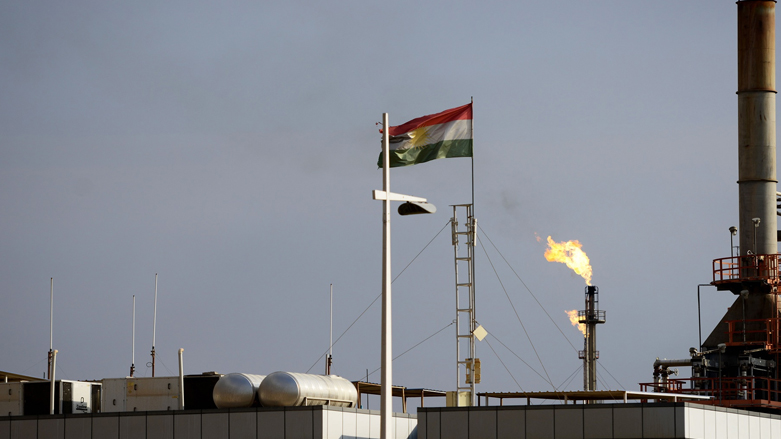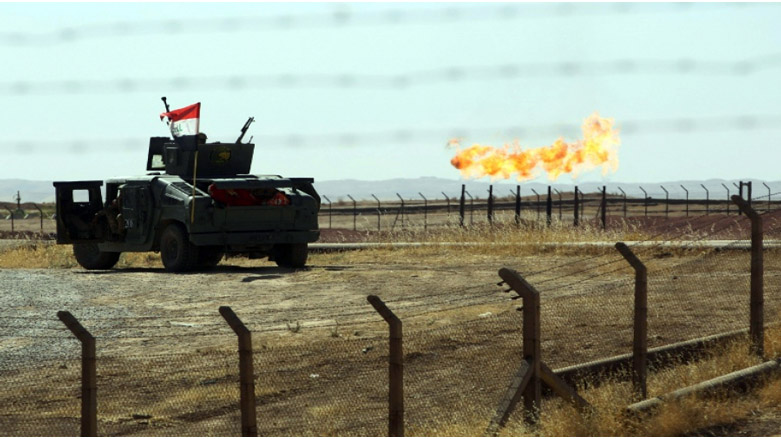Erbil-Baghdad Kirkuk disputes cost 550,000 bpd in sales: Iraqi spokesperson

ERBIL (Kurdistan 24) – Iraq’s Ministry of Oil on Sunday claimed disputes between Erbil and Baghdad over oil exports cost the country approximately 550,000 barrels of oil per day (bpd) in sales.
“Kirkuk’s oil exports were halted as the Kurdistan Regional Government (KRG) and Baghdad have failed to reach an agreement,” Asim Jihad, spokesperson for the Ministry of Oil, told al-Sumaria news. He argued, however, that “the ministry is ready to restart exporting through the Kurdistan Region’s pipelines.”
“Oil production from Kirkuk’s fields is currently over 150,000 bpd. This can be increased after we resume exports,” Jihad noted, alleging that “the inability to export through the northern [KRG-controlled] pipelines generates a loss of revenue from the [potential] sale of 550,000 barrels daily.”
Production and sales of crude oil in Kirkuk have halted since Iraqi forces and Iranian-backed Shia Hashd al-Shaabi militias’ military takeover of the disputed area last October.
The province was under the protection of Kurdish Peshmerga forces following the emergence of the Islamic State (IS) in 2014 and the collapse of the Iraqi army. Two of the province’s oil fields were under the control of the KRG and exports were through the Turkish Ceyhan pipeline, which the Iraqi Oil Ministry will attempt to bypass with the construction of a new pipeline.
The attack—which was Baghdad’s response to the Kurdistan Region’s Sep. 25 independence referendum—caused a significant reduction of Kurdish oil exports, which averaged 250,000 bpd from Kirkuk’s fields.
Jihad argued that the suspension of exports is “hurting the economy, and is causing a huge loss of financial revenue.”
“Everyone must put national interest above all disagreements as the export of substantial quantities [of oil] will contribute to the Iraqi budget, which would then be distributed among all Iraqis.”
Iraq currently sends between 40,000 to 50,000 barrels of Kirkuk’s oil to Iran while the rest of the oil is dropped back into the wells.
The spokesperson also mentioned that the Iraqi Ministry of Oil had asked the KRG during various negotiation rounds to hand over exports to the Iraqi state-oil marketer SOMO, which the latter has refused to do.
“The ministry has announced on multiple occasions its desire to export through the northern port. However, unsuccessful negotiations between the federal and regional government have created a deadlock,” the spokesperson explained.
Earlier this year, however, KRG spokesperson Safeen Dizayee said Erbil was ready to allow the Iraqi government to export oil from Kirkuk to international markets via the Kurdistan-Turkey pipeline.
“The demands they made regarding the number of KRG employees have all been delivered to them, and the auditing has been completed but, so far, no practical steps have been taken by Baghdad,” he said in February.
The Iraqi federal government has previously criticized the KRG for unilaterally entering into contracts with oil companies and exporting its oil without consulting Baghdad.
In early 2014, Baghdad cut the Kurdistan Region’s share of the federal budget, prompting the KRG to independently export and sell oil through Turkey. The Iraqi central government argued it had slashed the KRG’s payments in response to accusations Erbil was “illegally selling” its oil.
Since then, the KRG has heavily relied on oil exports revenues to pay public salaries, and weather the financial crisis, the war against IS, and the influx of over 1.8 million refugees and Internally Displaced Persons (IDPs). It has also accused the central government of failing to provide sufficient financial support.
Iraqi Prime Minister Haider al-Abadi, in the aftermath of the referendum on independence for the Kurdistan Region, demanded oil exports come under full control of the federal government.
Editing by Nadia Riva

